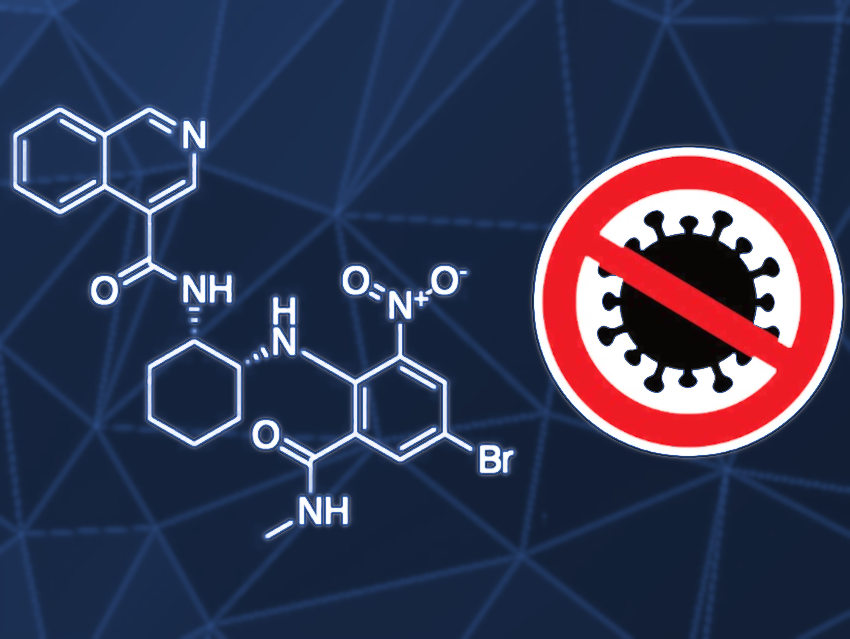The coronavirus SARS-CoV-2 remains a health threat in many countries. Especially in vulnerable patients, severe disease or even death are still possible, especially without appropriate treatment. The enzyme 3C-like protease (3CLpro) is a good pharmaceutical target because it is essential for the replication of the virus. This enzyme is inhibited, e.g., by Nirmatrelvir, an antiviral agent in the approved drug Paxlovid. Nirmatrelvir, however, is a covalent inhibitor that binds to the enzyme via a reactive group. This poses the risk of side effects because unwanted reactions could happen elsewhere. Non-covalent inhibitors could avoid this problem.
Pei-Yong Shi, University of Texas Medical Branch, Galveston, USA, Zhigao Bu, Harbin Veterinary Research Institute, Chinese Academy of Agricultural Sciences, and National High Containment Laboratory for Animal Diseases Control and Prevention, Harbin, China, Qi Hu, Westlake University, Hangzhou, China, and colleagues have developed a non-covalent 3C-like protease inhibitor with high efficiency against SARS-CoV-2 in cell cultures and mouse models. The team initially conducted a screening for suitable structures using DNA-encoded library technology. The most promising candidates were synthesized and tested for their activity against 3CLpro. Among those, the molecule codenamed WU-04 (pictured) was the most effective.
X-ray diffraction after cocrystallization of the enzyme and the inhibitor allowed the researchers to determine the relevant interactions between WU-04 and 3CLpro. Various hydrogen bonds, halogen bonding, and an amino-π-interaction stabilize the complex between enzyme and inhibitor. Cellular assays with different cell lines from the human respiratory tract showed high potency against the Delta and Omicron variants of SARS-CoV-2 as well as against the pathogenic coronaviruses SARS-CoV-1 and MERS-CoV. This indicates that the inhibitor could prevent the replication of various types of coronaviruses, which would be valuable in case of the emergence of new variants or viruses.
A study in mice indicates that the new inhibitor has a similar activity compared with Nirmatrelvir. Thus, according to the researchers, WU-04 is a promising drug candidate for coronavirus treatment.
- Development of Highly Potent Noncovalent Inhibitors of SARS-CoV-2 3CLpro,
Ningke Hou, Lei Shuai, Lijing Zhang, Xuping Xie, Kaiming Tang, Yunkai Zhu, Yin Yu, Wenyi Zhang, Qiaozhu Tan, Gongxun Zhong, Zhiyuan Wen, Chong Wang, Xijun He, Hong Huo, Haishan Gao, You Xu, Jing Xue, Chen Peng, Jing Zou, Craig Schindewolf, Vineet Menachery, Wenji Su, Youlang Yuan, Zuyuan Shen, Rong Zhang, Shuofeng Yuan, Hongtao Yu, Pei-Yong Shi, Zhigao Bu, Jing Huang, Qi Hu,
ACS Cent. Sci. 2023.
https://doi.org/10.1021/acscentsci.2c01359




